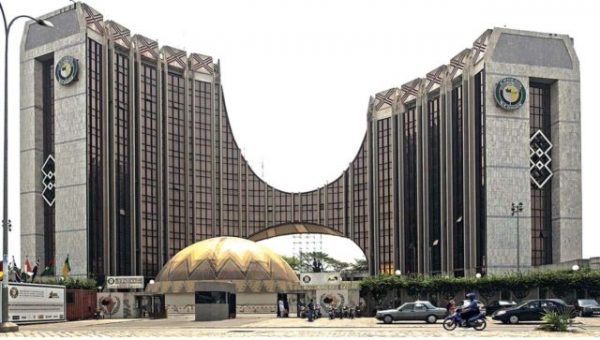Major private sector players have called for the removal of barriers that have hindered the full implementation of the Economic Community of West African States’ Trade Liberalisation Scheme.
They made the call in Lagos at a one-day sensitisation workshop on ETLS organised by the ECOWAS National Unit, Ministry of Foreign Affairs, in collaboration with the National Approval Committee and the Lagos Chamber of Commerce and Industry.

The ETLS is a trade instrument designed by the regional economic committee to boost intra-regional trade among member states. It is administered by the ECOWAS Commission through member states’ ECOWAS National Units to encourage duty-free trade among 15 countries that make up ECOWAS. The countries are Nigeria, Ghana, Republic of Benin, Cote d’Ivoire, Gambia, Guinea, Guinea-Bissau, Liberia, Mali, Niger, Senegal, Sierra Leone, Togo, Burkina Faso and Cabo Verde.
The scheme also aims at offering unhindered access to the 15 member countries and promoting economic activities within the sub-region. It equally aims at establishing a Customs union among member states, targeting total elimination of Customs duties and taxes of equivalent effect, removal of non-tariff barriers and the establishment of Common Customs External Tariff barriers to protect goods produced in member states.

However, as laudable as these ideals seem, there was no consensus that many entrepreneurs, especially in the micro-small and medium enterprises sector, had fully key into the scheme.

In his own presentation, the Assistant Chief Trade Officer, Nigerian Export Promotion Council, Sunday Ayodele, who said the agency was in the position to issue export certificate to Nigerian entrepreneurs that wanted to export their goods, noted that in accessing the opportunities provided by the ETLS, Nigeria ranked a distant third behind Ghana and Cote d’Ivoire.
He said for any products to be qualified to access the ETLS, the local content must be 60 per cent and any entrepreneur or business concern not registered by the member states’ relevant ministries and bodies might not access it too.
He said, “With the ETLS, as a producer of goods, you cannot just dump your goods on any country in the scheme. You must have been registered with relevant government agencies and bodies and your goods verified for quality on both ends for you to access it.”
A representative of the National Agency for Food and Drug Administration and Control, Mrs Simisola Onabajo, stated that some of the edible products exported from Nigeria suffered ‘reject alerts’ due to poor packaging, among others.
She added that NAFDAC would not compromise on the quality of drugs, food and pharmaceuticals in order to make them acceptable in the region and globally.
The Permanent Secretary, Ministry of Foreign Affairs, Mustapha Suleiman, said the ETLS if well utilised would not only give Nigerian goods a greater access to a regional market, “it will boost production and healthy competition.”
A representative of the ECOWAS Commission, Moustapha Gnankambary, noted that the ETLS would afford the consumers access to diversified products, while the business concerns could access 300 million consumers.
The President, LCCI, Mr Babatunde Ruwase, noted that the sensitisation workshop was timely, as it provided an opportunity to review the progress the ETLS had recorded and the challenges confronting it.
Ruwase who was represented by the LCCI’s Deputy President, Mrs Toki Mabogunje, said there was a need to highlight the challenges and its prospects in order to make the scheme better.
He said, “The ETLS remains the operational tool to promote free trade in the sub-region. It has become necessary for all stakeholders to come together to discuss the progress the scheme has made so far and the challenges confronting it.”
Other challenges confronting the ETLS highlighted at the event are poor implementation, infrastructural challenges, fear of domination and dumping.
 MMS PLUS NG – Maritime, Aviation, Business, Oil and Gas News Online Newspaper with coverage in Maritime, Oil and Gas, Aviation, Power and Energy as well as Financial News
MMS PLUS NG – Maritime, Aviation, Business, Oil and Gas News Online Newspaper with coverage in Maritime, Oil and Gas, Aviation, Power and Energy as well as Financial News










